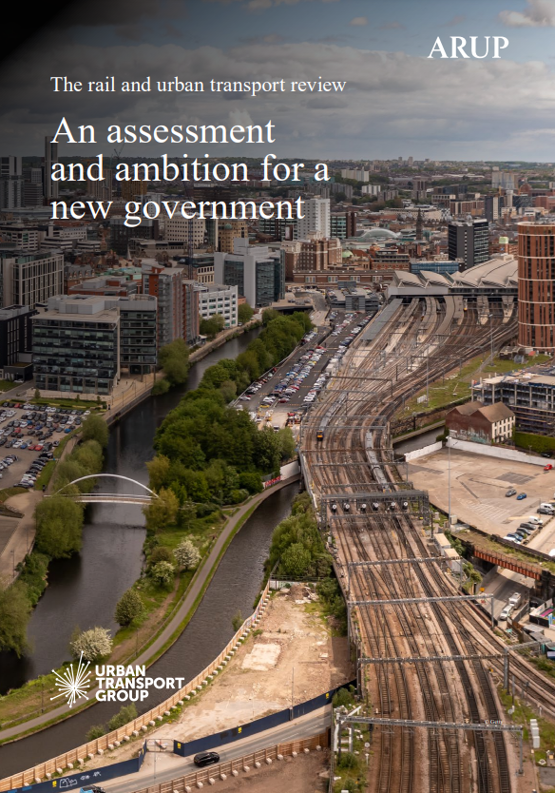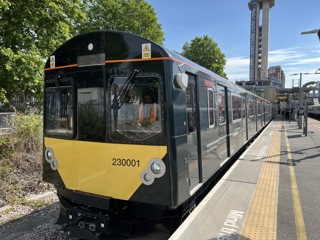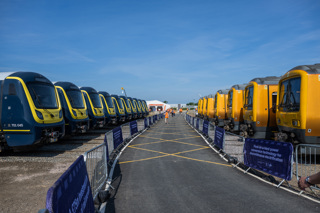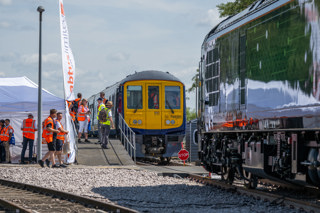
Industry heavyweight Juergen Maier CBE has today unveiled a bold vision for the future of the UK’s rail and urban transport infrastructure, urging a radical overhaul to create a more connected, affordable, and high-capacity network.
The ‘Rail and Urban Transport Review’ sets out a series of recommendations, including the establishment of an ambitious transport infrastructure plan, which it describes as a transformative framework to reduce project delivery costs and timelines. It also calls for a greater focus on public-private partnerships.
Speaking to RAIL, Maier emphasised the need for a long-term vision, stating, “Until now, the ‘chop and change’ approach to transport policy has created significant ambiguity in the sector, raised costs, and held back investment.
“With smarter partnership and smarter delivery, we can be faster, more cost effective and greener all at the same time. There are case studies in the report that very much proved that is the fact.
“And we can point to projects that the UK delivers, such as an electrification project in Wales that is in the report, which show we can do that. But it’s very often the chop and change which holds us back.”
The review’s findings have been distilled into five key themes, addressing the economic, social, and environmental needs of the UK.
These include accelerating the delivery of transport infrastructure, which the report states could be achieved by driving down project costs by 20% and timelines by 25%.
This accelerated infrastructure programme will sit within a first ever ‘national transport strategy’ that includes all forms of public transport as well as rail.
The Mayor of Greater Manchester, Andy Burnham, said that short- and medium-term decisions on capacity and urban connectivity would need to be made quickly, with both the Castlefield Corridor and West Coast main line cited as real obstacles to growth.
“We can’t let the West Coast main line collapse. And it will do in the 2030s if nothing is done about it now. That culture of ‘getting round to it’ has to change, and whilst the issue of HS2 north of Birmingham has gone, this strategy at least helps us make those early decisions now and helps our growth.
The review will now inform the Department for Transport’s plans within the autumn and spring Budgets, as well as the government’s transport strategy.
Louise Haigh MP, Secretary of State for Transport, who originally commissioned the review when in opposition, said: “The work done here will feed into the integrated national transport strategy which will feed into these recommendations as we work to the Budget.
“So, we can deliver that infrastructure and integrated plan for the North of England but also for the whole country - and the plan that we put to the country, to investors and to the supply chain will be the plan that we deliver. No more broken promises, no more chopping and changing. You can absolutely hold me to that.”
Tai Chong Chew, Director and Global Rail Leader at Arup, highlighted the importance of public-private collaboration in accelerating the delivery of improved connectivity and growth.
“Transformative approaches such as ‘Greener, Faster, Cheaper’ will ensure infrastructure projects are delivered on time and within budget,” he said.
Connecting HS2 from Old Oak Common to Euston would be for another day.
Haigh commented: “The legacy of HS2 is far worse than I imagined, and we will be making an announcement on the specifics and wider treatment of HS2 shortly.”
> MORE: Network Rail is shortlisted in numerous categories in the 2024 National Rail Awards


















Login to comment
Comments
No comments have been made yet.